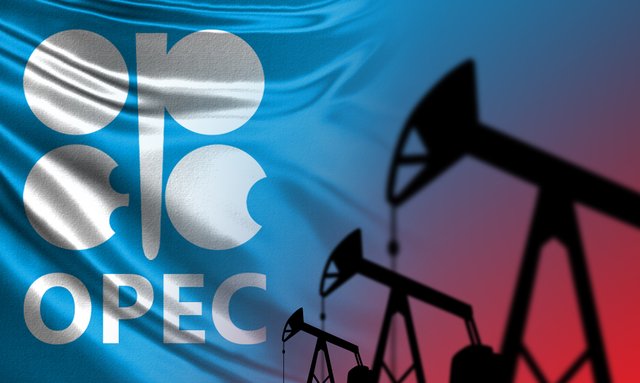- Your cart is empty
- Continue Shopping

Nigeria and Angola advocate for Fair oil production quotas Despite OPEC discussions
Nigeria and Angola have been firmly against the Organisation of the Petroleum Exporting Countries’ (OPEC) proposal to lower their production limits for crude oil.
A Bloomberg report from Tuesday claims that OPEC was forced to postpone a crucial meeting due to the persistent impasse over oil output quotas for certain African members. This is all the more true in light of the falling prices.
The coalition lead by Saudi Arabia, which represents OPEC, has been unable to come to a consensus with Nigeria and Angola. According to unnamed delegates quoted by Bloomberg, both countries are resisting reduced quota limitations for 2024, indicating their decreased capacity for production.
One delegate believes that further delays may be necessary because it seems doubtful that the impasse will be broken by the planned OPEC meeting on November 30, 2023.
Reasons Behind the Rejection
The main source of contention is the suggested modifications to the oil output targets that were tentatively decided upon during the June OPEC meeting. Nigeria and Angola voiced displeasure with the updated numbers, and these new quotas were being examined by outside specialists.
Nigeria is arguing for a small increase from the interim level, requesting a quota of 1.58 million barrels per day until 2024. Luanda’s proposal, on the other hand, is 1.18 million barrels per day, which is more than the consultants’ estimate but less than the June agreement.
For the 23-nation coalition, which mainly depends on oil revenue to pay for government spending, the rejection might be financially risky.
Impact on Global Markets
Market observers expect that additional cutbacks may be required as OPEC and its allies struggle to decide on a production programme for 2024. There may be a new surplus as crude prices are heading towards $80 per barrel.
Since July, the coalition’s front-runner, Saudi Arabia, has voluntarily cut its oil output by one million barrels per day. In order to share the cost of output reductions, the monarchy is now pleading with other coalition members to lower their quotas.
Potential Ramifications and Market Expectations
The alliance may suffer serious financial repercussions if a consensus cannot be reached. If Russia and Saudi Arabia, the two leading members of OPEC, don’t extend their extra supply curbs of 1.3 million barrels per day until the first quarter of 2024, analysts predict that prices may go as low as the $70s.
Many watchers of the market anticipate stronger action from the larger alliance. Analysts at Eurasia Group believe that OPEC may be forced to declare another official cut due to the weakening fundamentals and pessimistic market attitude.
The United Arab Emirates obtained the right to slightly raise production in January as part of the June agreement. It is unclear, though, if Abu Dhabi is under any pressure to give up that advantage in order to keep the markets stable in the face of the continued difficulties.
Source: allnewsng.com
